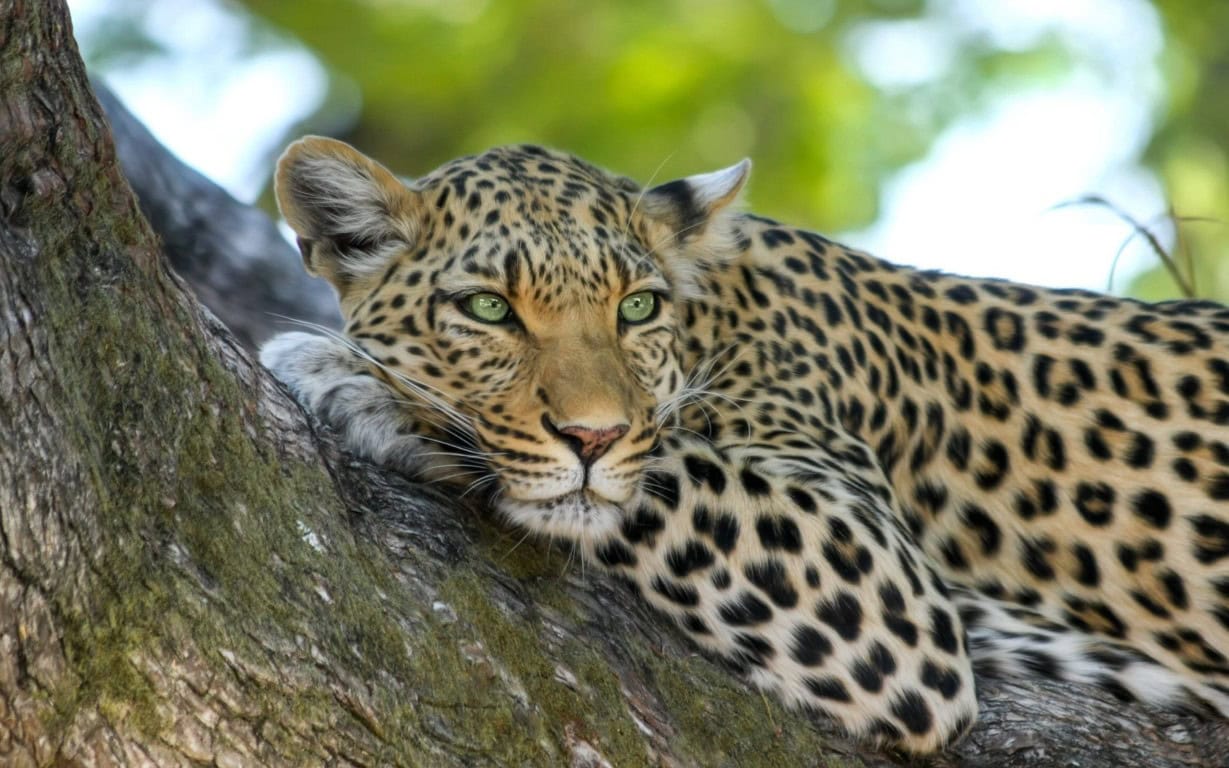A Big Five safari is at the top of the bucket list for many adventurers, but where you go matters. You can see lions, elephants, rhinos, buffalo, and leopards in several African countries, but Botswana stands out for its unrivalled wilderness, conservation-first approach, eco-conscious experiences, and exclusive safari ambience.
Going on a Botswana safari also means you’re supporting one of the world’s most progressive models of ecotourism.
Sightings of elephants, buffaloes, and lions are common; but leopards can be elusive, and it’s also challenging to spot rhinos in Botswana – but they are there.
Why Should You Go on a Big Five Safari in Botswana?
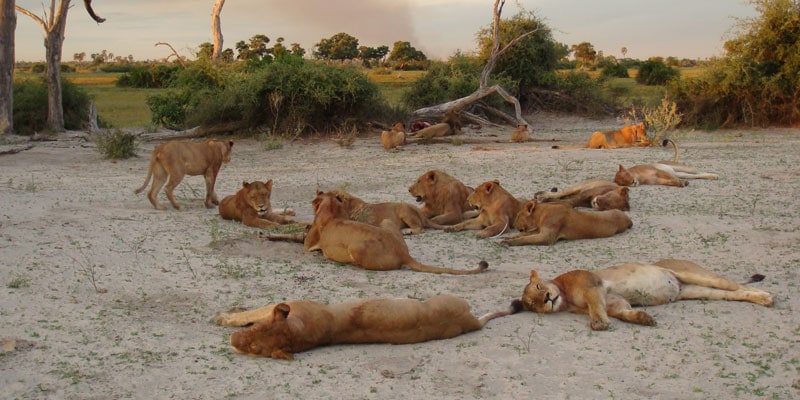
Botswana has a unique advantage. It’s not a mass-tourism destination; instead, it has a “high-value, low-volume” tourism strategy. Visitor numbers are deliberately limited, especially in world-famous reserves like the Okavango Delta and Moremi Game Reserve. The result?
You get exclusivity and intimacy, rather than several safari vehicles crowding a single animal sighting. Often, you get the sighting to yourself or share it with just one or two other guests. This is not always the case in the Chobe National Park River Front area, though, which can be busier.
There is a lower ecological footprint: fewer tourists mean less pressure on the environment. Wildlife is able to roam freely, and follow ancient animal migration trails with little human disturbance.
All this adds to the authenticity of your safari. In Botswana, you get to:
- See the Big Five in one of the most untouched natural environments on Earth.
- Enjoy low-volume tourism – sightings without the crowds.
- Support conservation and community projects with every booking through your Conservation, Community, and Reserve (CCR) fees.
- Explore diverse ecosystems – Botswana’s got desert salt pans, floodplains, and savannahs, each with their own unique attractions.
A Big Five safari in Botswana blends luxury with responsibility, and adventure with purpose.
Where To Go on Your Botswana Big Five Safari
Okavango Delta
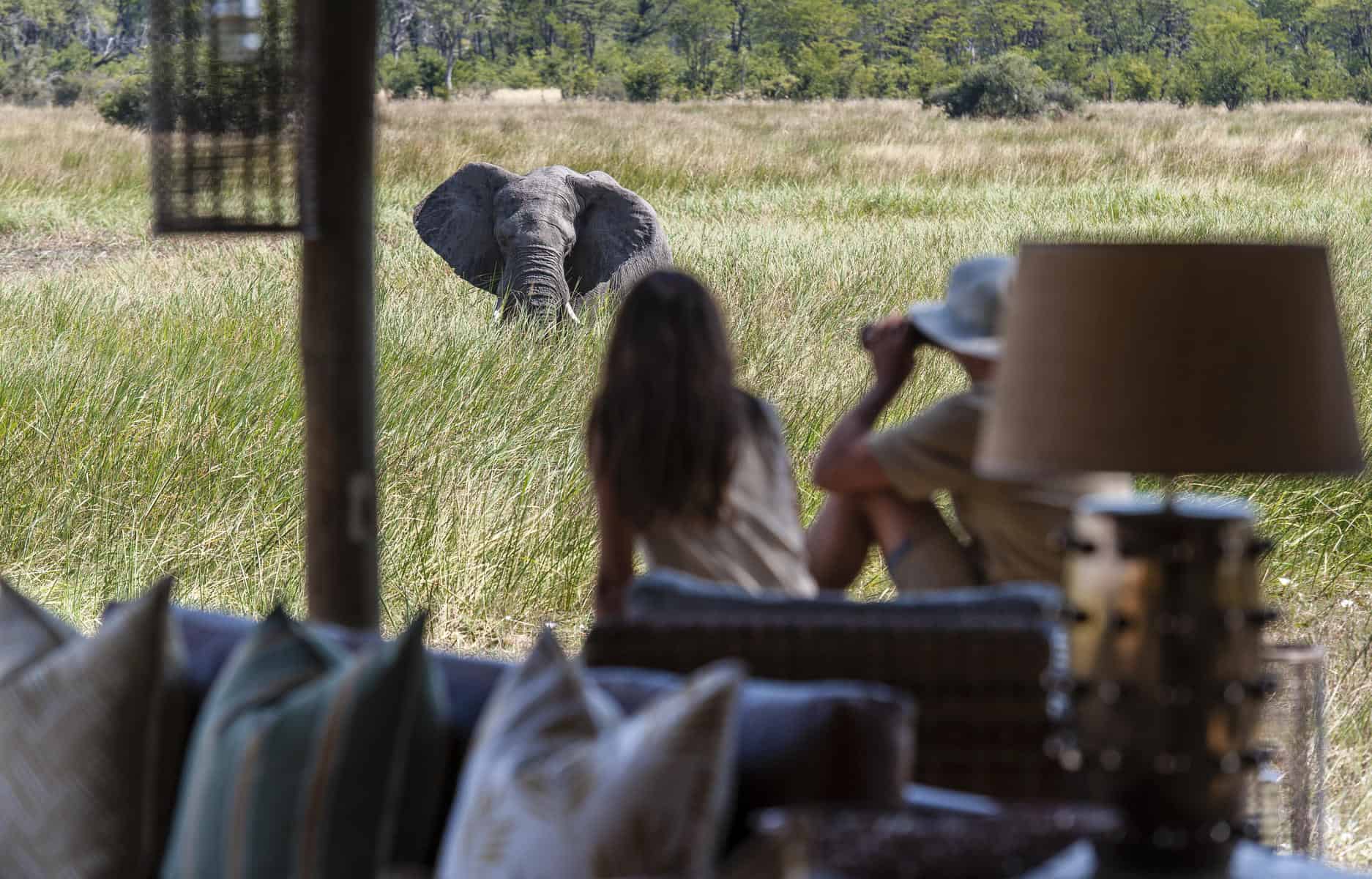
The Okavango Delta, where a river melts into the sands of the Kalahari Desert, is one of the world’s great natural wonders. It’s a UNESCO World Heritage Site, and is an immense inland delta teeming with life that ebbs and flows in line with the rains in the highlands of Angola.
What can you expect? An extraordinary, multi-sensory experience where you’ll smell the wild sage, hear the grunt of a hippo, and see the sunset paint the sky over the lagoons. This is best enjoyed via water-based safaris, gliding silently in a mokoro (dugout canoe), putting you eye-level with jewel-coloured reed frogs and dragonflies while fish eagles call overhead.
The Okavango Delta is home to all members of the Big Five, although rhinos are rare to see. However, elephant and buffalo herds are abundant, and lion prides are prominent.
For its combination of wildlife, water, and wilderness, an Africa Big Five safari in the Okavango ticks all the boxes. Our Classic Botswana Family Safari takes you to the Delta as well as Savuti and Chobe.
Chobe National Park
Chobe National Park is home to the largest population of elephants in Africa, so it’s almost a guarantee you’ll see plenty of the great pachyderms. Along the Chobe River, hundreds-strong herds drink, swim, and play. Boat safaris offer front-row seats to this wildlife spectacle. You’re also likely to see hippos, buffalo, and lions. It is popular, though, and can be more congested at times.
Moremi Game Reserve
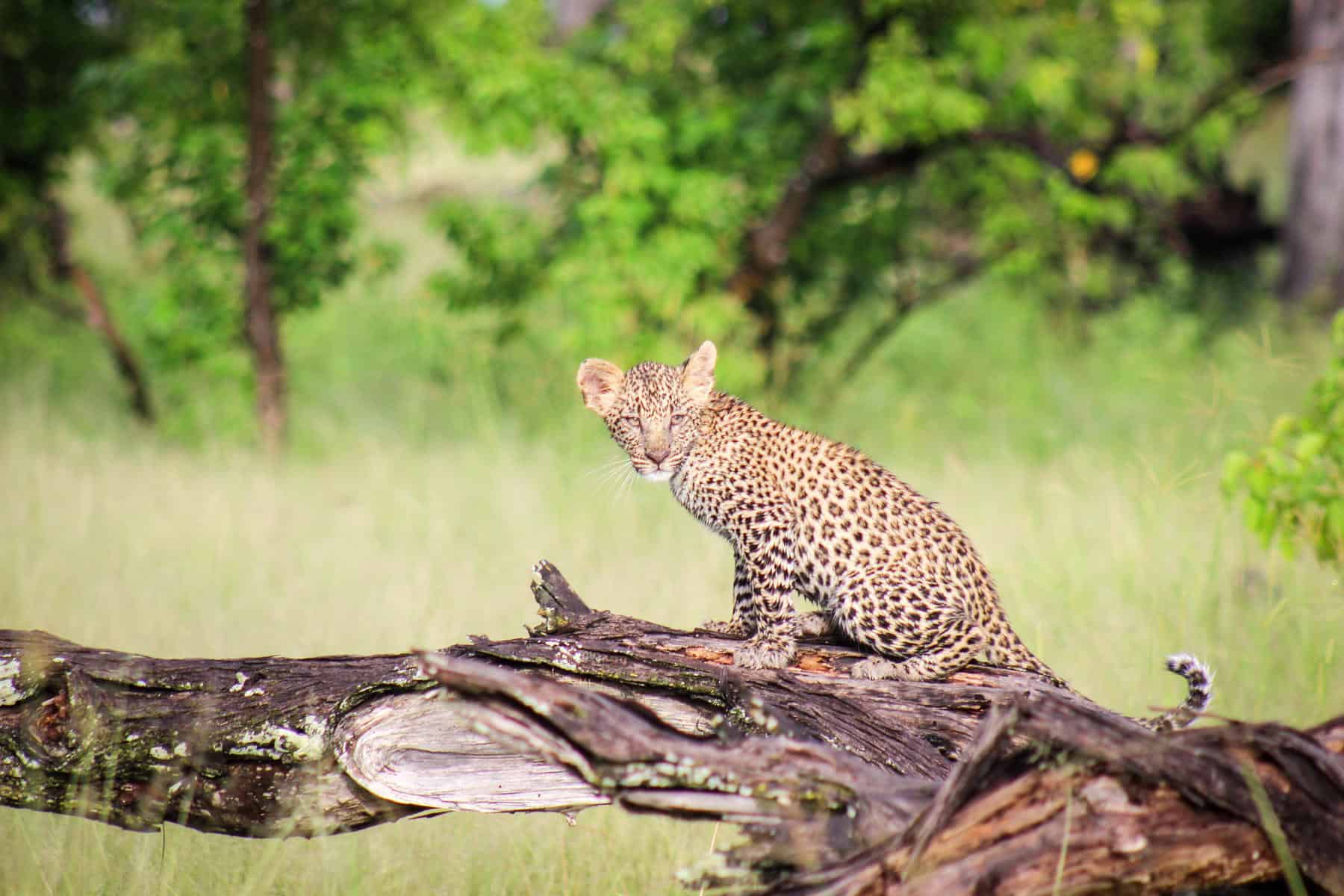
Moremi Game Reserve is the oldest protected reserve in the Okavango Delta and combines mopane woodland and floodplains, offering diverse habitats and rich wildlife. Some of the most endangered African species call this reserve home, including white and black rhinos (although seeing them is rare). Moremi also has more than 500 species of birds, making this destination a fantastic choice for birders.
Khama Rhino Sanctuary
As recently as 1900, rhinos faced extinction in Botswana. Conservationists reintroduced rhinos to the Okavango Delta and Chobe National Park. Under threat from heavy poaching, rhinos were moved to Khama Rhino Sanctuary in the 1990s, and since then, the population has thrived.
A few individuals have been successfully released back into the Okavango region. It is possible to see rhinos in the delta, but Khama Rhino Sanctuary is the best place to tick off this sighting in Botswana.
Makgadikgadi Pans
The Makgadikgadi Pans are the stark, shimmering opposite of the green and watery Okavango Delta (experience both on our Makgadikgadi Pans & Okavango Delta Safari Adventure). Vast silver-white flats stretch to the horizon – they are so big you can see the curvature of the Earth.
When the rains come, they transform into rich, grassy plains and zebra and wildebeest migrations sweep across the pans. Flamingos settle into the wetlands, painting the landscape pink. In the dry season, the silence is otherworldly. And the clear, unpolluted dark skies mean stargazing is mesmerising.
Safari Diversity: Beyond the Big Five
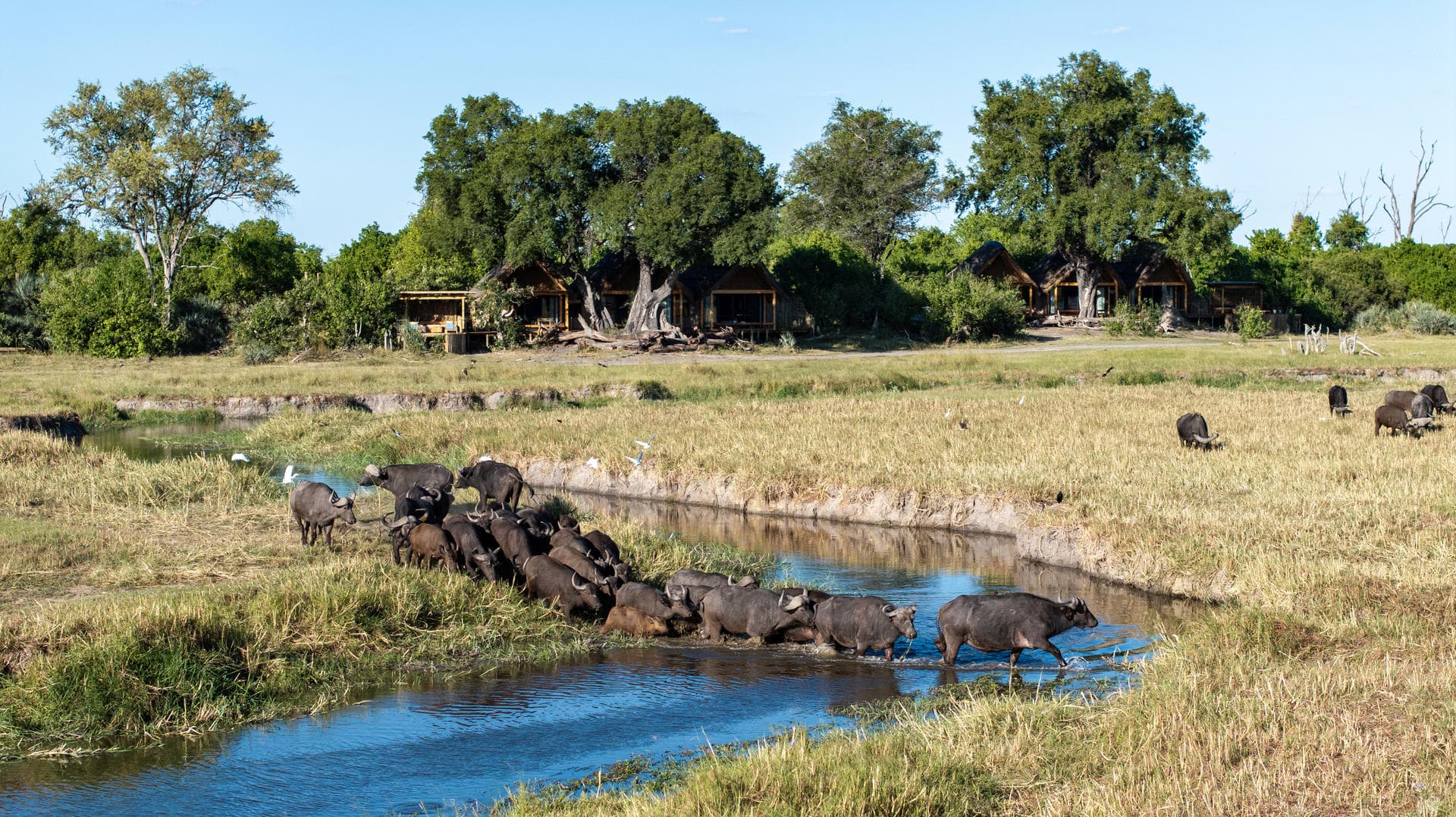
Botswana is mostly flat and semi-arid to arid, yet it has varied landscapes, which means you can choose your safari style:
- Mobile safaris: this is the classical way to safari, with mobile tented camps following the wildlife as it moves with the seasons. At night, you drift off to sleep with the scent of woodsmoke in the air and the distant roar of a lion outside your canvas walls.
- Boat safaris: in Chobe National Park, cruise along the Chobe River to see herds of elephants drinking, swimming, and playing in the shallows.
- Walking safaris: expert guides show you wild Africa, from the ground up. You get to see the smaller wonders of the bush, track spoor and learn about medicinal plants.
Conservation at the Core of Botswana Safaris

A safari in Botswana directly supports conservation.
- Protected wilderness: more than 37% of Botswana’s land is protected as national parks, reserves, and wildlife management areas. This safeguards migration routes and habitats.
- Rhino and predator projects: many safari operators support rhino reintroduction, wild dog conservation, and lion protection initiatives.
- Community impact: revenue from the Conservation, Community, and Reserve (CCR) Fee funds anti-poaching efforts. Some of the revenue also goes to directly benefit local communities, who have a stake in conservation.
Best Time to Go on a Big Five Safari in Botswana
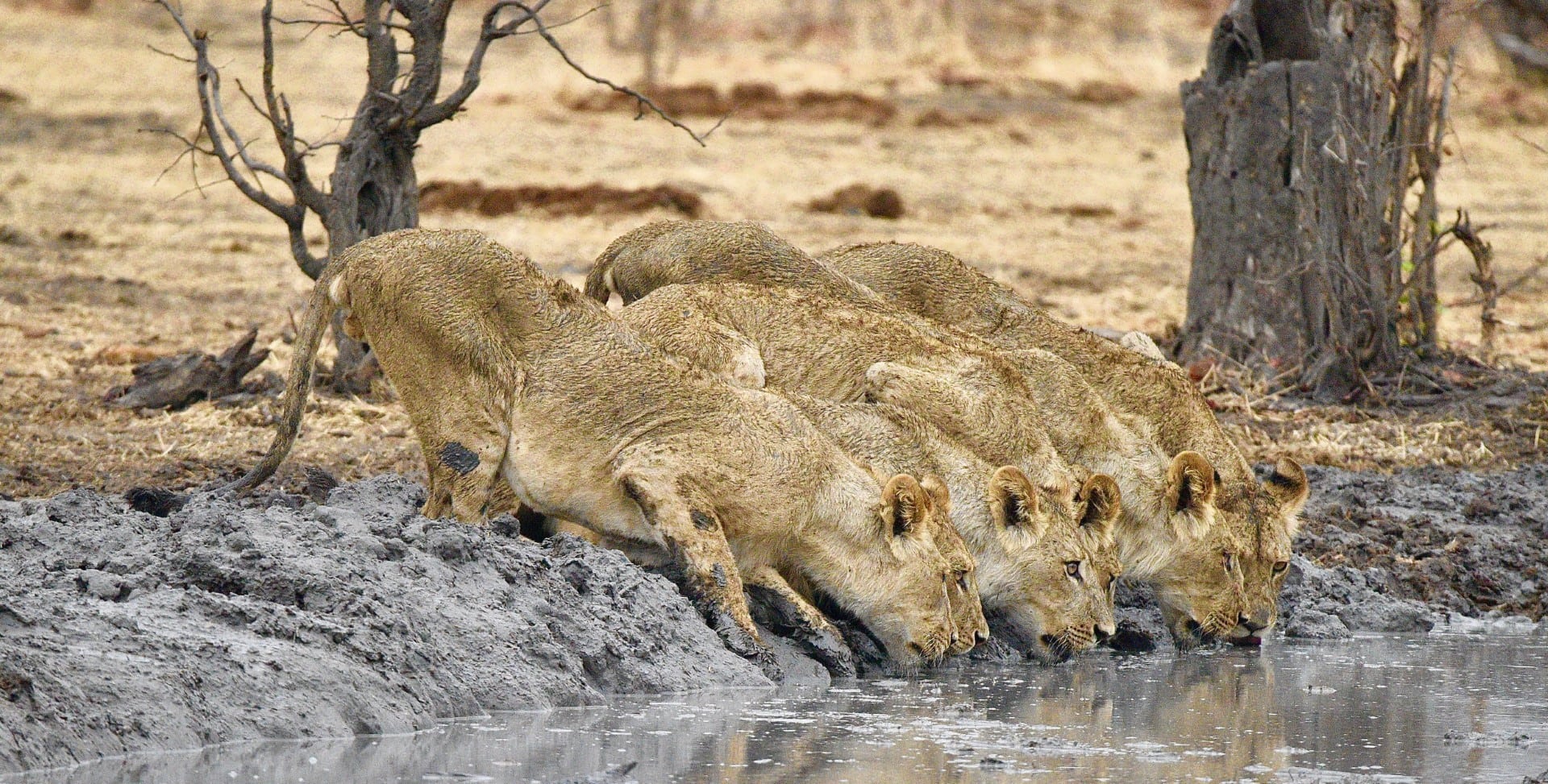
The best time for a Big Five safari in Botswana depends on what you want to experience, but the dry season (May to October) is the most popular time.
Dry season (May to October): wildlife viewing is at its peak. Animals gather at permanent water sources, making them easier to spot. The Okavango Delta floods between June and August, even though it is the dry season, creating spectacular waterways for mokoro and boat safaris. Days are sunny, skies are clear, and game drives are at their most rewarding.
Green (or wet) season (November to April): summer rains transform Botswana into a lush, green landscape alive with birdlife, newborn animals, and dramatic skies. This is the best time for photography and for witnessing zebra migrations across the Makgadikgadi Pans. Prices are often lower, and the parks are quieter, though the thicker vegetation can make spotting the safari Big Five a bit trickier.
For most travellers, the dry season offers the classic Africa Big Five safari experience. But the green season rewards those who want fewer crowds and vibrant landscapes.
Top Tips for a Big Five Safari in Botswana
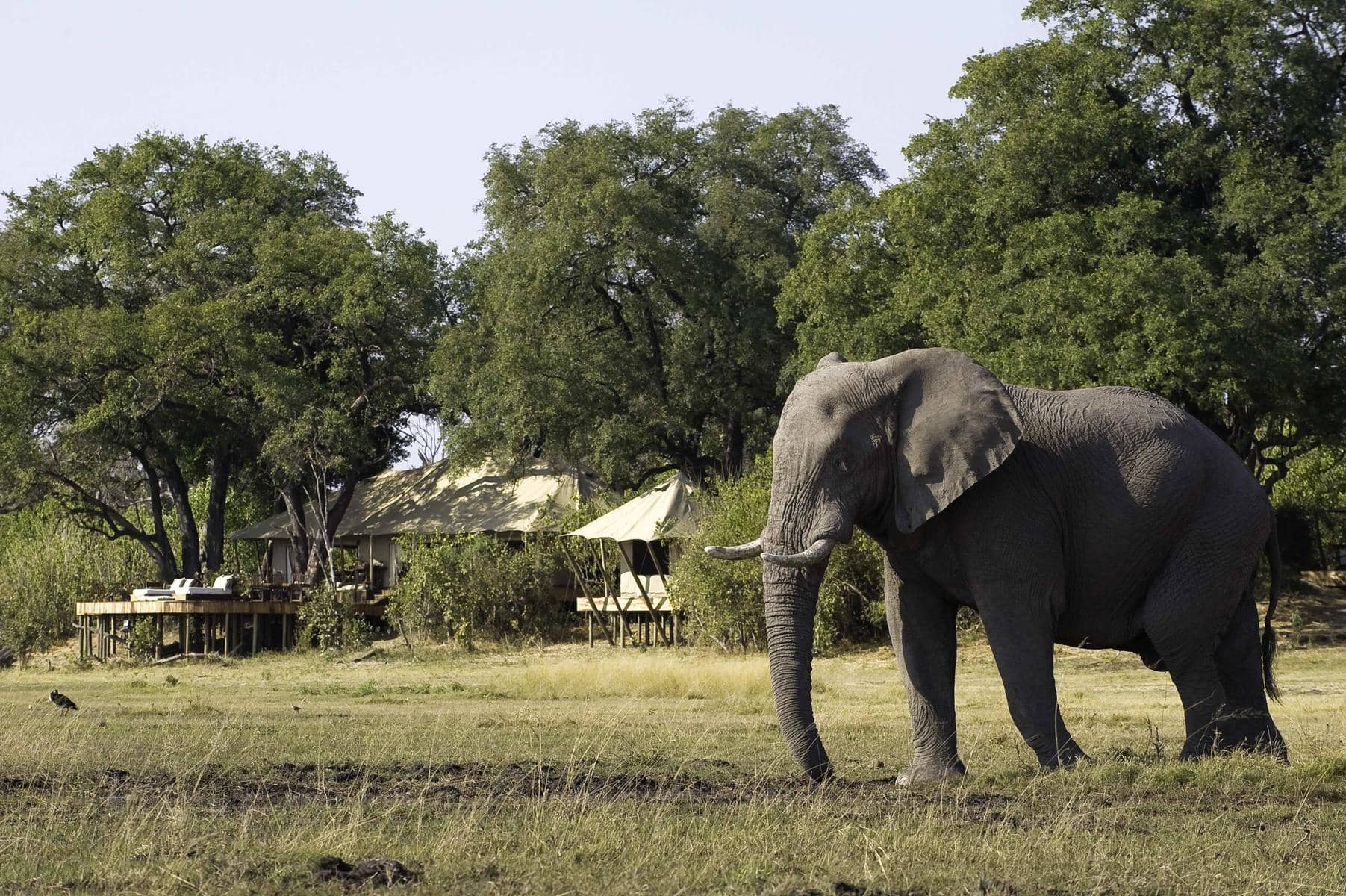
Go With Experienced Guides
Book tours with experienced guides who specialise in Big Five tracking. Discover Africa works exclusively with trusted partners who are experts in the field, so when you book with us, you know you’ll be guided by knowledgeable professionals.
Wear Safari Colours
Wear lightweight, neutral-coloured clothing on your safari. You’ll be more comfortable in the heat and blend in better with the environment. Also, binoculars are a good idea to pack, as they really enhance your safari experience by allowing you to see into dense brush where animals may be hiding.
Be Patient
Be patient and persistent, as some Big Five members, like the leopard, are elusive. Allocate time for many game drives to maximise your chances of seeing all five species.
Plan Your Botswana Big Five Safari
Botswana is one of the most untouched natural environments on Earth. Browse our Big Five Safaris or get in touch to build your own perfect journey. You’ll return home with unforgettable memories and the knowledge that your trip helped to keep Africa’s wild heart beating.






